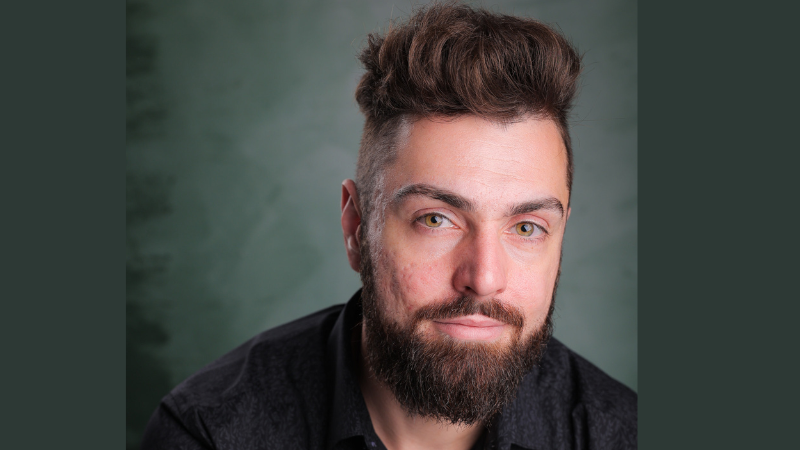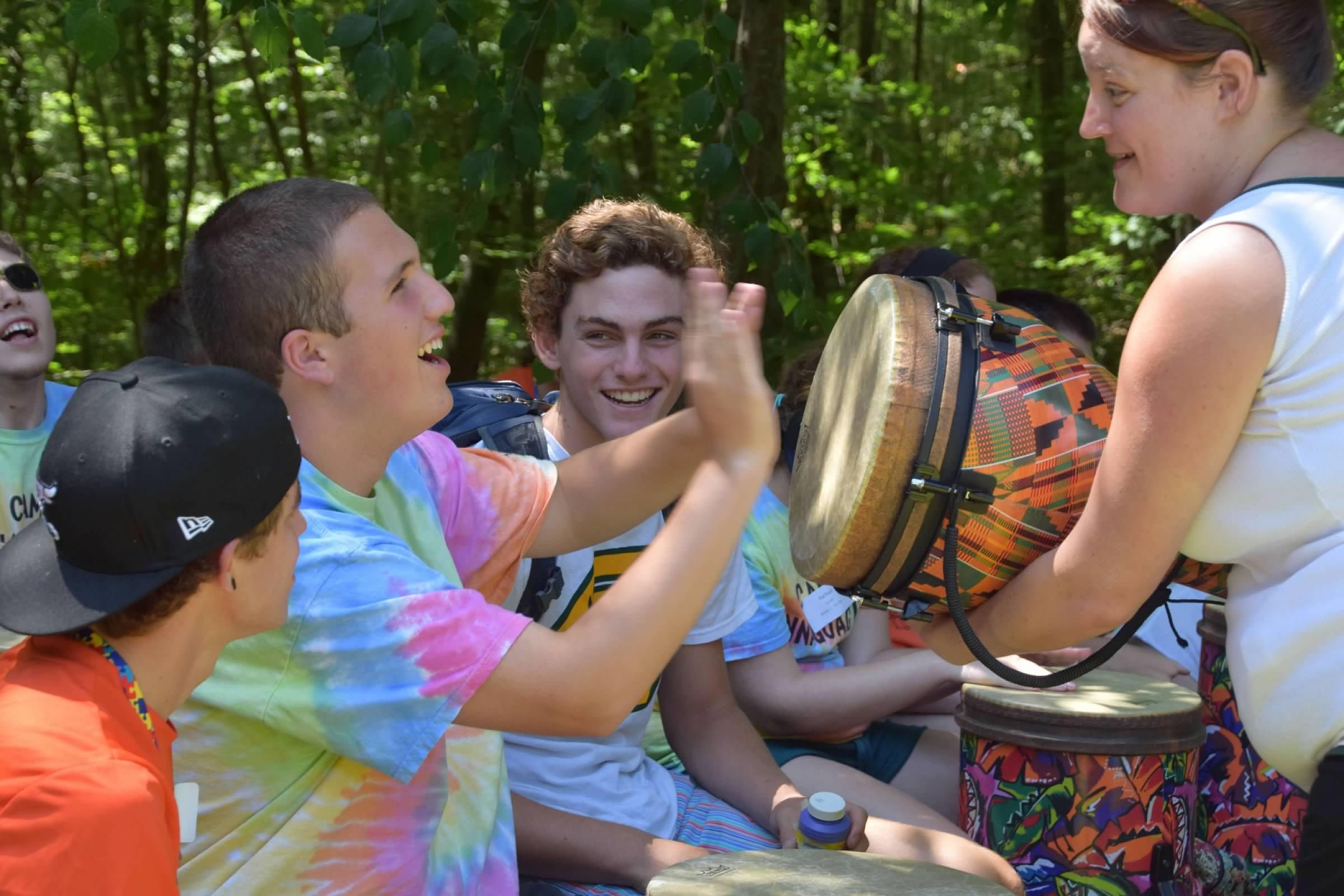
Voices of the Spectrum: Conversations with TAP's Autistic Adults #8
This is my eighth interview in a series where I speak with autistic individuals from The Autism Project (TAP) community! These conversations are a chance to listen, learn, and celebrate the diverse experiences and voices within our programs. My questions are in bold, and Neil's responses will follow in regular format.
What are your pronouns?
He/Him
Do you refer to yourself using person-first or identity-first language (person with autism or autistic person)? Is there anything you want people to know about why you choose that language?
I prefer to say I’m autistic, but I don’t mind people saying a person with autism. I grew up in a time where people used “autistic” as an insult to imply someone was stupid. Having autism or saying someone was on the spectrum was socially more acceptable, even to the medical community. I feel now the general autistic community consensus is that autism isn’t a disease you can catch and it’s a part of one’s identity. The term “having autism” is frowned upon. I agree, but old habits also die hard, and I don’t mind how anyone identifies me for that reason. I also say I’m autistic because autism is widely different per person. I find a bit of unity saying I’m autistic because I’m not put into a sub-category of “how autistic” I am.
When were you diagnosed with autism? How did you feel about getting the diagnosis? How did getting the diagnosis impact you?
I was diagnosed when I was 8 years old, sometime around 2001. I have a younger brother who was non-verbal for his first 3 years, and that led to him getting diagnosed. I wasn’t non-verbal, but my mom noticed I exhibited autistic traits after aggressively learning about autism when my brother was diagnosed. At the time, I was diagnosed with Asperger’s Syndrome, which is now just classified as autism. I personally don’t have any memory of being told my diagnosis, but I do recall always knowing I had it since then. The diagnosis allowed me to receive lots of support when I was in and outside of school. I had a very good IEP and was able to get accommodations that I took for granted at the time. I truly can’t comprehend how much the occupational therapists, special education teachers, teacher aides, and everyone else who was involved within my IEP helped my development. I do know it was positively impactful, and I felt I could handle the struggles I was facing in life in a better way.
Do you have any special interests or hobbies? What are they? What do you enjoy about your interests or hobbies?
I play guitar. I really enjoy NBA basketball—from the sport, to the logistics of how the organization is run, to the players involved. I really, really, really like cleaning. I get generally obsessive about things that would be called special interests, but I pick them up and drop them pretty frequently.
Are you employed or do you volunteer? Is there anything you want people to know about your job?
I’m a freelance cinematographer/videographer. I work on a mix of e-commerce and corporate videos. I’ve been working in this field for around 10 years.
How and when did you first become connected to The Autism Project? Is there anything you would like to share about your connection with The Autism Project?
Joanne Quinn’s son Patrick and my brother are close in age and were both diagnosed around the same time. The Autism Project that I knew growing up was more of a group where parents brought their kids to one of the participants’ houses and worked with occupational therapists, teachers, etc.
I did a video for the AP for my capstone project in college and eventually did contracted work with the AP when I graduated.
Do you like spending casual time one-on-one with people, in small groups, or in large parties?
I like spending one-on-one time with people. Sometimes I like small groups if I have a relationship with everyone, and large parties are very intimidating to me because I don’t understand where I belong in those spaces.
What are your favorite things to do with friends or family?
Just being present with each other. I like just talking and sharing stories. Maybe going on an adventure or doing a group activity, but just the time with them means the most.
Do you have a romantic relationship or partnership? If so, how did you meet your partner?
I do not. Dating is very hard for me and I’ve always had a hard time navigating that space.
What accomplishments—academic, personal, or professional—are you most proud of?
I’m most proud that I was able to take care of and raise my cats. They have since passed away, but they were my pride and joy and taught me so much about love and caring.
What do you want more people to understand about autism, especially in adulthood?
I’ll touch on adulthood in particular for this one. There can be a vast amount of loneliness—loneliness from having trouble making adult relationships, loneliness if your support system is no longer there to help you, loneliness from not being able to relate to peers, etc. Some autistic people who had special support in school still want/need it when they are an adult, and it’s very helpful. If we lose some of these programs/funding, it will hurt so many people.
There have been studies that show autistic adults can be more than 2000% more likely to have either suicidal ideations or attempt suicide than neurotypical adults. Life isn’t easy for everyone, but it can be even more isolating if we can’t give the support and help we can for those who need it.
What do you want employers to understand about autism?
Corporate culture has unwritten rules of etiquette that are never taught. You’re expected to learn them on the job. I’ve witnessed people lose jobs or not be asked to be brought back for jobs because they didn’t follow etiquette. I do wish more people would explain to others the proper/improper things to do.
I’ll give an extreme example. I worked on a job where the clients were all devout Christians. A young co-worker I had on the job was talking about a short film they were making where they wanted to do a violent fight scene in a church. The employer heard this conversation and never gave that person a call again because they felt it was disrespectful. They never told that co-worker why they weren’t going to call them nor enact any discipline—just cut them loose. While I personally agree that the co-worker was disrespectful, it was also apparent that this young co-worker didn’t know they were being disrespectful and never got the chance to learn that.
If someone were to at least explain why that was inappropriate, that co-worker could have learned and maybe would change their behavior in the future. Instead, it’s written off as “that should be common sense” and it’s not their problem.
Most people, when they start out in a new career, fail many times before they become good at their job. Autistic people are just as teachable as neurotypical people. There just might be different things that need to be taught.
What do you want colleagues to understand about autism?
In a job space, I’ve been frequently called things along the lines of being a robot or a computer. It’s supposed to be a compliment for doing something smart, having a good memory, or approaching problem solving in a left-field way. I respect the compliment and what they’re trying to say, but being called a machine makes me feel like less of a human than I already do. I’ve always had a hard time making relationships and connecting with others. Being called a robot makes me feel as if I’m not making a true connection with those around me.
What do you think doctors should understand about autism?
Myself and some of my autistic peers are not the best at describing what our bodies are feeling. Describing pain in particular is very hard. It’s taken me a very long time to understand how to communicate with a doctor properly about my needs. I’ve found medical professionals that ask a lot of questions and have the patience to listen and help identify my problems to be very helpful.
What are the greatest misunderstandings about autism?
So many, but I’ll keep it short. Autism is a spectrum, not a scale. Autism is different in everyone. While there are some similar traits, no one person is the same, and evaluating autism is on a person-by-person basis.
I also think autism and intelligence get bundled together, and they shouldn’t. Autism is very broad, and things such as “more autistic or less autistic” and “high functioning and low functioning” don’t paint the full picture of an autistic human being. Language and communication skills are a part of all of us, but things such as emotional/logical intelligence, creativity, problem-solving skills, and so many other traits are things that go beyond communication and social skills.
Thank you for taking the time to get to know Neil. His honesty, insight, and willingness to share remind us how important it is to listen, learn, and support autistic individuals at every stage of life.


